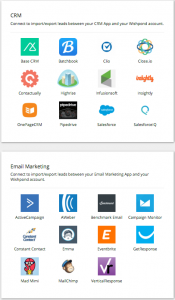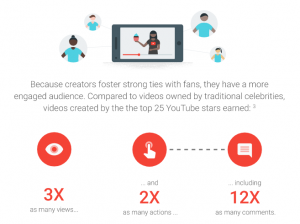By Andrew Sheridan, Published November 9, 2014

As a marketer, proving the impact of your campaigns through conversions and ROI is how you demonstrate your value to the company. It has always been important to measure the results of your marketing efforts, and professional marketers now rely more heavily on the technology that supplies this statistical evidence. There are many technologies that provide this data, and knowing which to use can make a big impact on where you choose to spend your marketing dollars. The following six technologies are those rated highest in our annual State of Marketing Measurement Survey:
- Web Analytics: Web analytic technologies, like Google’s Universal Analytics, are currently being used by 73% of marketers. Track visitors’ activity on your websites, as well as the referring source, and when they left. Web analytics tools are helping marketers to create a formidable online presence by optimizing the way consumers interact with their websites.
- SEO and PPC Tools: 63% of marketers are using SEO and PPC measurement tools in order to get the most out of their search engine presence. Technologies from companies like Kenshoo, Marin Software, and Acquisio help marketers to select the best keywords and optimize conversion and click-through rates for various search engines. If keyword-level advertising is part of your marketing mix, you don’t want to miss out on the benefits that come from this technology.
- Customer Relationship Management (CRM): Just over half (52%) of marketers are using CRM solutions such as Salesforce.com, to deliver insights on sales conversions. Being able to track a prospect all the way through the sales cycle can provide valuable insight. The more data you have on each lead as it progresses through the pipeline, the more impact the marketing team will be able to have on future leads. CRM technology provides both marketing and sales managers the tools to close more business.
- Call Tracking Solutions: Phone calls have surges in conjunction with the rise of mobile advertising. As a result, 38% of marketers are using call tracking technology from Ifbyphone to measure and optimize inbound phone leads. With phone leads being reported as your most valuable lead, you don’t want to miss out on the data that proves where your calls are coming from. Being able to determine where your inbound phone leads originate can make a huge difference in your marketing efforts.
- Mobile or Responsive Website: With the rise of mobile phones, 46% of marketers are turning to mobile web measurement tools to optimize their mobile efforts. Mobile is thriving right now due to the influx of smartphones. By 2017 it is estimated that 92% of all mobile phones will be smartphones. Marketers are beginning to realize this and have started to heavily incorporate mobile into their marketing mix. Measurement of this channel, using services such as Optimizely, is on the rise and is necessary to demonstrate the impact mobile has on your conversions and ROI.
- Marketing Automation: Only 33% of marketers are using this powerful technology, yet it provides some excellent data. When all marketing activities are flowing through a marketing automation platform, such as Act-On or HubSpot, this provides an abundance of data on the success of each marketing activity. Knowing where a lead originates and how they are interacting with your company can generate drastic improvements in your marketing efforts.
Proper use of all of these technologies can provide marketers with an abundance of data to demonstrate the effect your marketing campaigns have on conversions and ROI. When you have strong, data-driven marketing, it becomes difficult to argue against the value you provide.
Business Articles | Business 2 Community
(330)








